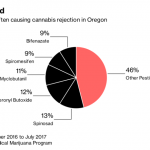
Nowadays, with the rise of the social media, it is very hard for many to separate between personal and professional lives. However, if you want to keep your professional credibility and personal brand, you need to learn how to set your boundaries on social media and be careful about whom you add to which social media account.
Setting Social Media Boundaries
- Say No: You don’t need to accept all friendship requests on Facebook or connection requests on LinkedIn. If you don’t know the person or don’t think the connection will be beneficial for you, then don’t add this person to your social media account. Learn to say “No”.
- Be Professional: Separate your professional network from your personal/friendship network. For example, you don’t need to be friends with all your coworkers on Facebook. If you want to be professional, it is appropriate to add them to your LinkedIn account but if you don’t like them as friends or don’t hang out with them outside of work, there is no reason to connect with them on Facebook.
- I have heard stories similar to this example happen before. Two coworkers are working for the same company and then, one of them quits and starts working for the rival company and one day this person posts news on Facebook or Twitter showing his excitement about his company’s potential new client. His friend in the previous company sees this news and works his way in to win over this client against him. Therefore, you should always be careful about what you post online and who can see your posts. Even if your intentions are naïve, unfortunately there may always be some people who want to take advantage of these intentions.
- Ask for Clarification: It is very easy to misinterpret online messages since you cannot see the mimics and gestures. If you are not sure about someone’s message or comment, ask for a clarification. Similarly, if you are offended by someone’s comment, talk to this person directly. Don’t reply to his comment. This may start an argument between two of you online which everyone can see. If you can, talk face to face. Otherwise, talk via phone or direct message.
- Think Twice before Posting Anything: Written statements are always more powerful compared to verbal statements. Therefore, think twice before posting anything online. Watch your words and language because everyone has different comfort levels. Also, never respond to anything when you are angry because you can write things that you may regret later on. Wait for a few hours, calm down and then, respond appropriately. Put yourself in the other person’s shoes. Think how you would feel, if you read this.
Republished by permission. Original here.
Boundary Photo via Shutterstock
[“source-smallbiztrends”]










